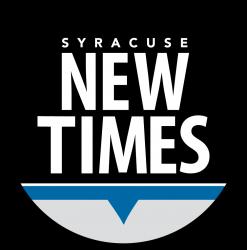A transportation carrier that starts on local grocery runs can find itself crossing multiple state lines within twelve months. Every new border brings different liability limits, unique filing requirements, and regulatory portals that look not like the one back home. Matching coverage to the real operating footprint protects cash flow and prevents delays caused by missing or outdated paperwork.
Local only, regional, or national
The FMCSA sets a federal minimum for interstate operators, but many states impose their own liability limits and endorsement forms. Carriers are advised to map their network in three zones: local only, contiguous regional, and coast to coast, if applicable. Each zone demands a different coverage plan.
- Local only – one domicile state, one liability limit, one set of state filings. Common for last-mile box trucks or municipal contracts.
- Regional – two to five neighboring states. For regional operations, fleets often set liability to the highest state requirement they face, since intrastate rules apply when hauling within that state.
- National – dozens of states. A practical approach is a higher primarily limit combined with an excess layer to handle large verdicts, should they arise.
A static policy written for the local only zone may fail the moment the fleet expands beyond it.
Common multistate hazards
Inspectors can issue out-of-service orders for missing or lapsed filings, and errors in policy classification (such as incorrect body type) can trigger compliance reviews or shipment delays. Special commodities can trigger extra compliance rules—such as commodity-specific insurance requirements in certain states or safety mandates like winter chain laws in Colorado.
Hidden risks lurk in contract language too. A shipper in New Jersey may require a one-million combined single limit even for an intrastate lane, while a similar haul in Ohio might only require the federal minimum. Not checking the alignment between the policy and new contract terms can hand competitors an advantage.
Why mismatched filings create instant downtime
If a liability limit or filing doesn’t match state requirements, inspectors can hold a truck until the record is corrected. Coverage records must match operating authority. If a unit isn’t listed correctly on the policy or filings aren’t active, enforcement can sideline the truck until resolved. Delays cost fuel, driver hours, and customer goodwill, and repeated compliance gaps can affect safety scores and future premiums.
How STAR Mutual RRG supports multistate operations
STAR Mutual RRG is domiciled in Tennessee and, as a risk retention group, can extend coverage into 40+ states, submitting filings as needed to keep carriers in compliance. This means a single policy number follows each power unit across its approved territory. When a new state is added, filings are submitted promptly to meet local requirements and keep vehicles in compliance.
A simple checklist for borderless compliance
A few consistent habits can prevent costly surprises:
- Set liability limits to meet the highest requirement in your current operating area.
- Post state endorsements before the first pickup in a new state.
- Audit driver motor-vehicle records every month to catch suspended licenses before they cross stricter borders.
- Verify every VIN on the policy ahead of seasonal equipment shifts such as harvest reefers or winter plow trucks.
- Run a sixty-day pre-renewal audit to catch missing body classes and outdated cargo codes.
Keeping filings current with the right tools
Most states already accept digital filings, but delays often come from manual steps inside the carrier’s own workflow. Reducing duplicate data entry and maintaining accurate driver and equipment lists makes it easier for filings to go through without delay.
The payoff in real miles
When a customer requests a rush delivery across multiple states, coverage that adapts on the same day turns compliance into a competitive advantage. Proving readiness up front reduces the need for surcharges, helps avoid surprise fines, and keeps freight moving without unnecessary delays.
Moving forward with confidence
Expanding across state lines should grow revenue, not paperwork headaches. By choosing an auto liability insurance partner that keeps filings aligned with the operating footprint, fleets can stay focused on freight instead of forms. Equip your operation with auto liability that travels as far as your trucks. Speak with your insurance agent about STAR Mutual RRG today and drive into the next state confident that every mile is backed by the right protection.



